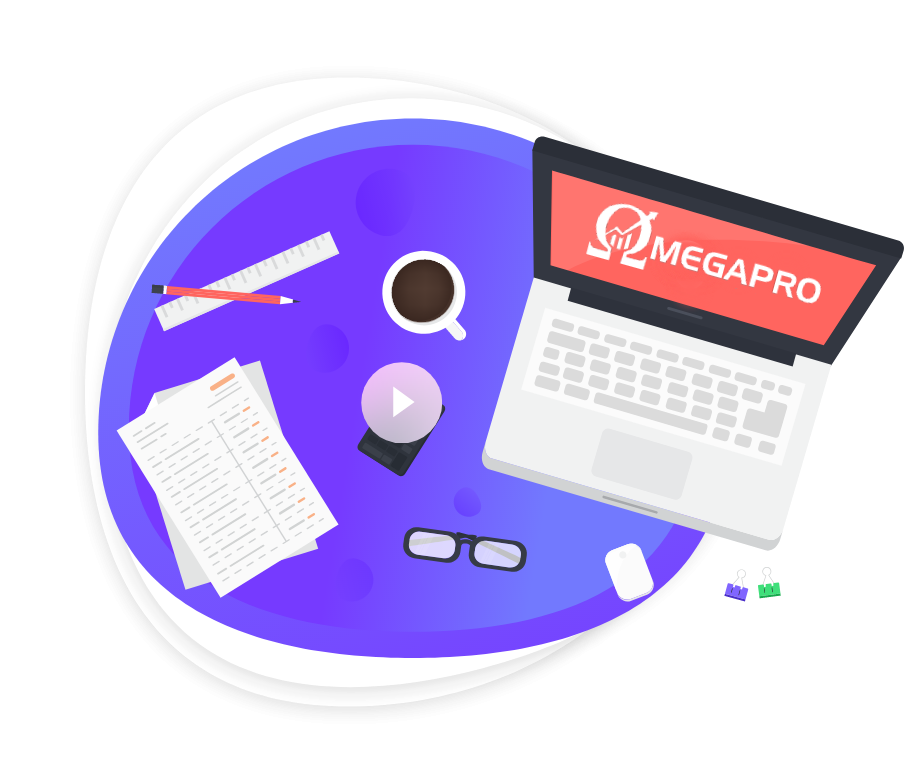We always keep the customer's best interest in mind.
FOREX
What is Forex?
A FOREX transaction involves the simultaneous purchase of one currency and the sale of another. In other words, currencies are traded in PAIRS such as the dollar and the yen (USD/JPY). The investor does not physically buy dollars or goods; instead, they exchange money regularly. A market where cash derivatives or contracts whose underlying assets are cash equivalents is FOREX. In this way, he (the investor) is compensated for differences in the way these currencies are valued.
As the values of currencies (such as dollars, euros and pounds) fluctuate at will in response to political events or economic factors, there is potential for implementing investment strategies to profit from these fluctuations. This market also allows for a XX Implementation of “hedge” strategies to protect against changes in exchange rates, which can be especially useful for those with income or expenses affected by the value of a specific currency, such as exporters. Physically active people may have this need if they anticipate a foreign currency expense in the near future.
Does Forex Really Exist?
There is a FOREX market; it is one of the biggest markets in the world. Daily contracts with a total volume of between one and three billion dollars are expected to be traded.
As the FOREX market is “virtual” and has no physical base in any region of the world, there may be risks for investors due to its “informality”.
It is shaped by the financial institution’s transactions that take place there. Due to the fact that transactions are carried out directly between parties via telephone, electronic systems and the internet, FOREX is therefore a speculation market. There is no centralized operation, but a network between institutions.
The Forex market is open 24 hours a day, almost without interruption, and trades the four major currency pairs worldwide. Starting in Sydney (Austria), passing through Tokyo (Japan), London (UK) and New York (USA).
Despite being a global market, brokers that provide investments in FOREX are registered with the governments of the nations in which they operate, such as the United States and the United Kingdom. Until July 2009, there were no active brokers registered with the CVM in Brazil.
And who trades Forex?
The FOREX market is not just for those who are interested in making profitable investments. In fact, individuals and legal entities interested in trading shares, such as importers and exporters, operate in this market to meet their needs in relation to foreign currencies.
However, due to their particular characteristics, most of the trading volume is made up of investors looking to make money or prosper. Speculators look for the most liquid currencies, or the most easily traded currencies, to carry out their strategies and achieve the highest level of profitability. This makes it easier for them to carry out their operations.
This market was once restricted to banks and institutional investors . With technological advancement and increasing globalization of financial flows, FOREX has become accessible to individual investors in other countries using the Internet.
And how does it work?
As stated earlier, FOREX operations include buying one currency and selling another, so currencies are traded in PAIRS, such as dollar and yen (USD/JPY) or even real and dollar. The investor does not physically buy dollars or goods; instead, they exchange money regularly.
As a result, when someone trades in this market, they are not buying a specific division, but a specific PAR, or a conversion rate between two currencies. Due to the fluctuation of these taxes and the relative value between foreign currencies (or between the national currency and foreign currencies), various investment strategies can be developed that can provide profit or loss.
So how is it possible to earn the promised profits in this market?
The answer lies in the use of “margin” in the operation, a mechanism that allows negotiating a larger amount of money by investing only a portion. It is not necessary for the investor to have access to all the resources involved in the transaction, as the transaction is only settled by the difference between the valuations of the different currencies. FOREX allows the deposit of only a “margin” – a minimum amount – to adequately cover daily fluctuations in the value of currency pairs.
The margin gives investors greater operational power, enabling them to carry out high-risk operations. In certain foreign exchanges, for example, the margin is 100:1, allowing the investor (called a “trader”) to execute a transaction with, for example, a reference value of 100 million dollars, depositing only one thousand dollars.
This structure makes it possible to make more money, but it also allows for greater losses. The logic is the same, however, both positive and negative results are multiplied by the value that can be traded with a given investment. Now, it should be borne in mind that there is RISK in this market and that risk is increasing significantly when operating on margin.
How risky is the Forex market?
While this market has the potential to deliver significant profits, it also runs the risk of suffering equally significant losses. The operation is compared to a lever system in the sense that it uses the force necessary to lift 1 kg and manages to hang 100 kg.
For example, if the ratio is 100:1, or you need to deposit 1% for every dollar deposited as margin, you could perform a 100 dollar change in value trade using just one dollar.
On the other hand, the use of margin results in increased risk of damage, expressed in percentage terms. If the deposit margin is also 1%, then a 1% loss on a hundred million dollars can equal 100% of the deposit. As a result, currencies do not have a large daily market, and any advance allowed is at most capable of making a small negative change into a significant loss for the investor. To invest in such a volatile market, you need to be prepared to accept orders.
The Forex Trading Process
If the investor had actually bought euros (1.0500) and then sold (1.0550) when it appreciated, he would have received a small return (less than 0.5%, or $400 on $105 million). . In addition, you would have to shell out $105,000, which is beyond the means of most individual investors.
However, as operating on the margins is an option, the investor may have received a much lower return. In the example above, if the required margin was 0.5%, or a ratio of 200:1, the roughly $100 million transaction could have been completed with a deposit of just $500.
Is it legal to trade forex in Brazil?
The first thing to emphasize is that this is a market that actually exists, albeit virtually. In addition, Brazilians are allowed to make investments abroad, such as the purchase of a house or financial instrument, provided that all applicable regulations are observed, including those established by the Central Bank of Brazil. This investment must also be made through institutions regularly established to carry out the activity.
Without a specific definition of “nationality”, FOREX is an international market. But in each country where customer and fundraising takes place, this must be done in accordance with local legislation. When operating abroad, brokers are registered in each nation where investors are being attracted, only organizations or individuals regularly authorized by the CVM to carry out this activity can request clients in Brazil to operate in FOREX. This is because it is a public offering for the distribution of derivatives, which are movable securities subject to CVM regulation and taxation.
The regulation is in force inside and outside Brazil exclusively to protect investors from information gaps, misleading information, fraud, manipulative actions and other situations that could harm them, and not normal market risks resulting from changes in asset prices or traded derivatives.
What’s the problem with working with someone without CVM registration?
In addition to encouraging illegal conduct (which, in most cases, is due to ignorance), these individuals or companies make doing business doubly risky.
• In addition to the substantial inherent risk of the FOREX market, an investor runs the risk of falling victim to a scam or robbery.
Without registration with the CVM, there is no guarantee for the investor that the “broker” or “company” actually exists or has the identity it claims to have. This makes it easier for unscrupulous individuals to take action.
If the transaction is carried out with institutions not registered with the CVM, it will also be significantly more difficult for them and any other tax authorities. If necessary, locate the perpetrators of the damage and identify the damage that was done. In many cases, providers use websites hosted on servers located in other countries or located outside the country. If the financial institution had a record, it would have at least representatives in the country, in addition to adhering to Brazilian legislation.
• Trading in this market through unregistered agents runs the risk of coming into contact with individuals acting illegally or unethically. Malicious people can use your data inappropriately or even to carry out other operations not authorized by the investor, in addition to potentially causing the investor to lose money.
What’s the problem with selling a product that isn’t registered regularly?
In addition to the issue of working with organizations not registered with the CVM, there is also the issue of trading with an asset (in the case of FOREX, a derivative) that is not registered for trading in Brazil.
The CVM’s approval of a derivative contract for trading on the market guarantees investors complete, accurate and up-to-date information about the product.
This regulatory body approval process ensures that investors have access to the information they need to make an informed investment decision about the product’s characteristics and risks, such as: the trading unit, the quote method, the calculation criteria settlement price, adjustments and margins, settlement methods, any potential restrictions on access to certain investors and positional limits.
When the CVM has not approved the trading of a derivative in the Brazilian market, there is no way to guarantee or require, in advance, that the investor has access to these details.
Therefore, when carrying out operations involving floating exchange rates, including FOREX, the only sure way to ensure compliance with local laws is to confirm that the offering institution and the product offered are registered with the CVM. She is there to protect the investor.

Proven Results on FOREX!
Management consulting is the practice of helping organizations improve their performance

Proof of Capacity!
Financial statements are a formal record of the financial activities and position of a company, person,

Other Forms of Earnings!
Advantages in addition to the result in FOREX, OmegaPro still has other ways of earning
Always be ready for the best!
The digital world – disruptive in any sense – is the main challenge for any industry.
Those who drive the global economy must respond to
the new consumer and to a globalized world.
ABOUT US
We are a team of participants and investors just like you, we have the same desires and fears, because we know that the investment market is something that can be very good or even a complete tragedy if some precautions are not taken before making decisions that affect the our budgets, therefore, we always advise to “take a chance on what goes wrong, you won’t miss it”.
We prefer to believe in OmegaPRO because its corporate structure is very well equipped and with people who are in the market and know what they are doing.
Good luck and great investments!


